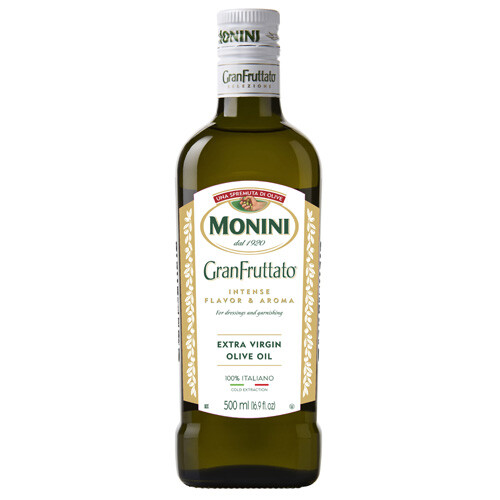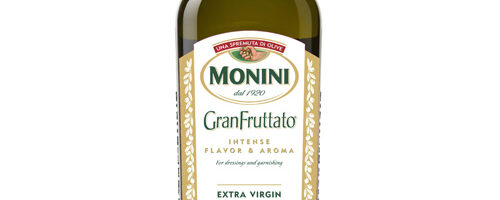
Italy
How is it produced?
Each year, olives are harvested between the first week of October to the last week of November when the fruits are purple. Traditionally, the fruit are harvested using rakes to remove the olives from the branches and they fall onto nets for collection. However, hand picking is slowly disappearing as each operator only produces about 10 kg to 20 kg per hour compared to the 30 kg to 50 kg per hour of machines. Once harvested the olives are cleaned and pitted then ready to go through malaxation. During this process, the olives pulp is processed through a regulated temperature for a long period of time, this encourages the oil from forming, maximizing the amount of oil produced. Once this step is over, the oil is filtered to be separated from the pulp stored and bottled to be shipped to the global market.
Describe the supply chain to the store shelf in Canada:
There are five steps in the process of olive oil production, with each step having its own structural and operational requirements, marketing policies, and economic scale. These steps include: 1) olive tree cultivation; 2) tree harvesting and processing; 3) oil storage, bottle, and distribution; 4) sealing bottled oil; and 5) the use of oil in culinary preparations. The longest and most strenuous processes are the first two steps. This entire process is regulated by the International Olive Council, who is also responsible for much of the international trade of the olive oil market. The oil may be bottled in the country that it was pressed or shipped to other countries to be bottled. Once the oil is processed and bottled, they are sold to Canadian retailers or food service outlets.
What is the power balance between the producer and seller?
In a 2012 report by the European Union, the average olive farmer in Italy makes about 33 percent to 51 percent below the national average of agricultural. In a comparison between different olive farms, one third of farms make less than 5000 Euros per family work unit per year, and ten percent of farms make over 30,000 Euros per year. Farms that rely on family labour cannot afford to hire employees as the cost of labour would result in a deficit in profit. These inequalities reflect the exploitation of small-scale olive farmers as they are unable to keep up with the production that larger farms can afford. Further, with each process in the supply chain, the cost of the oil increases, often with the retailer making much of the profit. Farmers and processors at the beginning of the chain result in making the least amount of profit, despite taking charge of the longest and most challenging tasks.
Can you recommend changes to the system to improve the balance?
The olive oil industry is filled with the selling of counterfeit oil. Due to the challenging task of Due to the challenging task of ensuring legitimate oil is bottled and sold, much of the olive oil sold in North America is either diluted with cheaper oils, or the label lies about the virginity of the content. In 2019, 69% of the olive oil sold in North America was illegitimate. Smaller farmers and producer are much more likely to sell real olive oils, but at a much higher price than larger companies who dominate the industry. If there is better regulation process that can objectively differentiate between real and fake olive oils, then can alleviate some of the power imbalance that exists. As the price of the oil increase with each step of the chain, farmers should also be making residual profits so that their labour is not exploited.
References/Resources:
Drolet, M. (2019, February 21). Consumers are being warned to be on the lookout for fake olive oil. Global News. Retrieved from https://globalnews.ca/news/4979292/consumers-warned-fake-olive-oil/
European Commission (2012). EU Olive Oil Farms Report. European Union.
Peri, C. (Ed.). (2014). The Extra-Virgin Olive Oil Handbook. John Wiley & Sons, Incorporated.
Meneley, A. (2007). Like an Extra Virgin. American Anthropologist, 109(4), 678–687. http://www.jstor.org/stable/27563819

